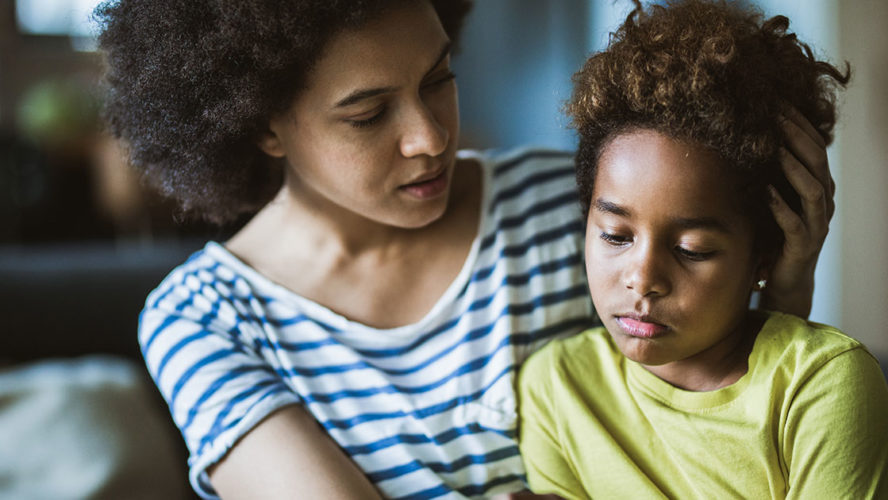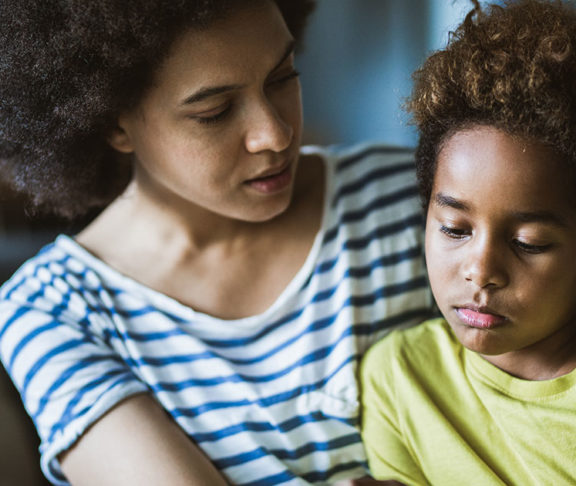Social isolation, disruption to everyday life, and the loss of loved ones has caused an unprecedented increase in mental health struggles among children and young adults during the COVID-19 pandemic.

Dr. Amna Husain, M.D., IBCLC
Owner and Medical Director, Pure Direct Pediatrics
What changes have you seen in the past couple of years regarding mental health?
When it comes to older children, I have seen changes in mood like increased irritability, feelings of hopelessness, difficulty controlling anger, and frequent conflicts with family. We can see this spill over into memory and cognition, affecting schoolwork. We might even see a loss of interest in activities that your child previously enjoyed like exercise, enjoying time with friends, and music classes. Commonly, I see issues with sleep, even changes in appetite and weight.
With younger children, I notice anxiety and tantrum behavior becoming more frequent and intense. On occasion, we can even see regressions in behavior and learned skills.
What resources do you recommend for young people struggling with mental health, especially during COVID?
Nowadays there are a lot of free wellness apps to help individuals that struggle with mental health. A few I recommend to my teens and young adults are Calm: Sleep and Meditation, Headspace: Mindful Meditation, and Better Sleep: Relax and Sleep.
What misconceptions are there surrounding mental health?
One of the biggest misconceptions about mental health is that mental illnesses are not common. Since the start of the pandemic, hospitals have seen more mental health emergencies amongst kids. More than 140,000 children in the United States have experienced the death of a loved one from COVID, and children of racial and ethnic minority families have been especially affected. Research shows they’ve had up to 4.5 times the risk of losing a caregiver to COVID compared to other kids.
I’ve spoken frequently on adverse childhood experiences, which have increased during this time. Another common misconception is that struggling with mental health is a sign of weakness. Struggling with mental health is an illness and requires treatment just as any other medical condition; it is in no way a weakness or lack of willpower.
What is the most common struggle parents face when it comes to their child’s mental health? Is mental health between children and parents connected?
There is definitely a limit of availability when it comes to mental health providers. When it comes to finding a provider who takes a family’s insurance, they may have a long wait or be closed to taking new patients simply due to the sheer volume of mental health cases.
Oftentimes the mental health of children and parents is connected. Parents who may not have the best support system tend to have poor mental health which can inadvertently affect their children.

Kelly Fradin, M.D., FAAP
What changes have you seen in the past couple of years regarding mental health?
Stigma against those with mental health diagnoses has decreased substantially. The pandemic has brought to light the mental health crisis our children have faced even before the pandemic with nearly 20 percent of children having a clinically significant mental health concern and only 1 out of 5 getting appropriate treatment. In recent years, parents, teachers, and stakeholders in children’s health have begun understanding the crucial importance of promoting mental well-being. While these changes haven’t made much progress yet, I’m hopeful that in the years to come these changes will translate into improvements in children’s mental health — fewer barriers and more access to treatment.
What resources do you recommend for young people struggling with mental health, especially during COVID?
Even during COVID, there are still people out there willing to help. Primary care doctors including pediatricians, family, and internal medicine are well equipped to help struggling individuals reach a diagnosis and find appropriate treatment options. Most insurance cards have numbers to help individuals find professional help. NAMI maintains a national helpline resource directory that is a fantastic resource. It’s essential for people struggling to know that they aren’t alone in what they are facing and there are options for treatment.
What signs are there to look for in friends or family who may be struggling?
Sometimes children show us they are struggling rather than tell us. Tantrums and behavioral issues are common signals, as well as difficulty sleeping, decreased appetite, and loss of interest in activities and people who previously brought joy. Stomachaches and headaches can also be presenting symptoms of depression and anxiety.
What misconceptions are there surrounding mental health?
I worry that some people think of investments in mental health as a luxury. While it’s true that your physical body may be capable of doing the things you need to get done, when you have a mental health issue it can cause enormous suffering to you and those around you. Treatment for mental health disorders is, in my mind, just as essential as treatment for physical health issues.
What is the most common struggle parents face when it comes to their child’s mental health? Is a child’s mental health connected to their parents?
While the root cause of an individual’s mental health diagnosis is often unclear, numerous population studies suggest many conditions such as ADHD, anxiety, and depression can be inherited. This can be difficult for parents who may remember facing the same difficulties earlier in their lives.
Many parents struggle to find appropriate resources to help support a child’s mental health. Before the pandemic it was estimated only 1 in 5 children received the treatment recommended. Many parents blame themselves for their child’s mental health concerns, incorrectly thinking that different parenting techniques would have prevented the issue.

